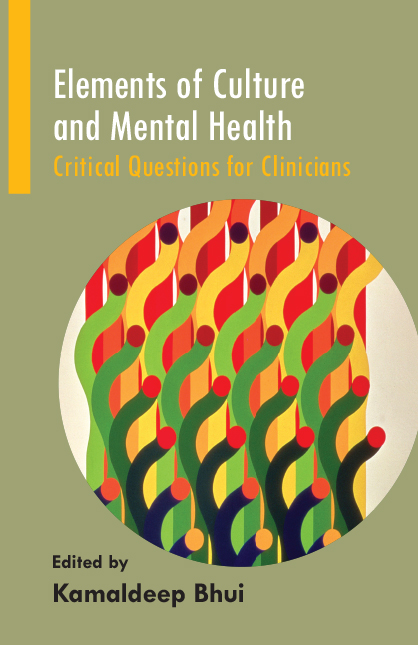Book contents
- Frontmatter
- Contents
- List of contributors
- Foreword: Desire and commitment: essential ingredients in learning about culture and mental illness
- 1 Is trauma-focused therapy helpful for survivors of war and conflict?
- 2 Will ethnopsychopharmacology lead to changes in clinical practice?
- 3 Does cognitive–behavioural therapy work for people with very different cultural orientations and backgrounds?
- 4 Can you do meaningful cognitive–behavioural therapy through an interpreter?
- 5 Are particular psychotherapeutic orientations indicated with specific ethnic minority groups?
- 6 Can psychotherapeutic interventions overcome epistemic difference?
- 7 On the role of culture and difference in evaluation, assessment and diagnosis
- 8 Necessary and sufficient competencies for intercultural work
- 9 On the validity and usefulness of existing Eurocentric diagnostic categories
- 10 Benefits and limitations of the cultural formulation in intercultural work
- 11 Barriers to the intercultural therapeutic relationship and how to overcome them
- 12 How does intercultural interpretation work in the mental health setting?
- 13 Do the power relations inherent in medical systems help or hinder in cross-cultural psychiatry?
- 14 Recovery and well-being: a paradigm for care
- 15 Social perspectives on diagnosis
- 16 Public mental health and inequalities
- 17 Can you do psychotherapy through an interpreter?
- 18 Can race and racism be acknowledged in the transference without it becoming a source of therapeutic impasse?
- 19 Cultural competence: models, measures and movements
- 20 Religion, spirituality and mental health
- Index
11 - Barriers to the intercultural therapeutic relationship and how to overcome them
- Frontmatter
- Contents
- List of contributors
- Foreword: Desire and commitment: essential ingredients in learning about culture and mental illness
- 1 Is trauma-focused therapy helpful for survivors of war and conflict?
- 2 Will ethnopsychopharmacology lead to changes in clinical practice?
- 3 Does cognitive–behavioural therapy work for people with very different cultural orientations and backgrounds?
- 4 Can you do meaningful cognitive–behavioural therapy through an interpreter?
- 5 Are particular psychotherapeutic orientations indicated with specific ethnic minority groups?
- 6 Can psychotherapeutic interventions overcome epistemic difference?
- 7 On the role of culture and difference in evaluation, assessment and diagnosis
- 8 Necessary and sufficient competencies for intercultural work
- 9 On the validity and usefulness of existing Eurocentric diagnostic categories
- 10 Benefits and limitations of the cultural formulation in intercultural work
- 11 Barriers to the intercultural therapeutic relationship and how to overcome them
- 12 How does intercultural interpretation work in the mental health setting?
- 13 Do the power relations inherent in medical systems help or hinder in cross-cultural psychiatry?
- 14 Recovery and well-being: a paradigm for care
- 15 Social perspectives on diagnosis
- 16 Public mental health and inequalities
- 17 Can you do psychotherapy through an interpreter?
- 18 Can race and racism be acknowledged in the transference without it becoming a source of therapeutic impasse?
- 19 Cultural competence: models, measures and movements
- 20 Religion, spirituality and mental health
- Index
Summary
A considerable body of research shows that ethnic minorities and immigrants have lower levels of health service use relative to White or mainstream populations (Institute of Medicine, 2002), and once entering into treatment, have poorer adherence and end it sooner. These results are in part due to barriers related to access to mental health services, poor awareness of mental health services and stigma surrounding their use, lack of services in the patient's mother tongue, cultural insensitivity (Sue, 2003), distrust of service providers (Watkins et al, 1989) and problems in the therapeutic relationship (Griffith, 1977; Welch, 2003; Qureshi, 2005; Comas-Diaz, 2006; Qureshi & Collazos, 2011).
Some of these barriers lie beyond the purview of the busy mental health professional. The therapeutic relationship, however, is not only well within the control of the clinician, it is also one of the strongest predictors of positive therapeutic outcome (Horvath & Symonds, 1991; Jennings & Skovholt, 1999; Martin et al, 2000; Cruz & Pincus, 2002). The barriers can be understood to be related to sociorace and racism and cultural difference (Gregg & Saha, 2006). The impact of the last derives from the cultural encapsulation of the clinician (Wrenn, 1985), in which the clinician operates from the perspective of pig-headed ethnocentrism (as differentiated from quotidian ethnocentrism in which the clinician is aware that they experience the world from their own cultural perspective) (Rorty, 1987), assuming that their own take on reality is not only correct but also superior to that of the ethnic other. The power differential inherent in the clinical context (Rose, 1998), which can be exacerbated by institutional racism and the challenges inherent in immigration (Walls, 2004), can negatively affect the therapeutic relationship in various ways.
Intercultural communication
Communication style, both verbal and non-verbal, is culturally circumscribed (Singh et al, 1998; Morales et al, 1999; McDonagh, 2000; Skelton et al, 2001; Ulrey & Amason, 2001; Van Wieringen et al, 2002; Kapoor et al, 2003; Misra-Herbert, 2003). Normal and adequate communication is a function of cultural context. In the clinical encounter, too little or too much expression of emotion (either flat affect or lability), for example, is considered to be symptomatic. Yet it is reasonably well established that norms for the expression of emotion are by no means universal (Markus & Kitayama, 1991; Jenkins, 1996).
- Type
- Chapter
- Information
- Elements of Culture and Mental HealthCritical Questions for Clinicians, pp. 51 - 56Publisher: Royal College of PsychiatristsFirst published in: 2017



